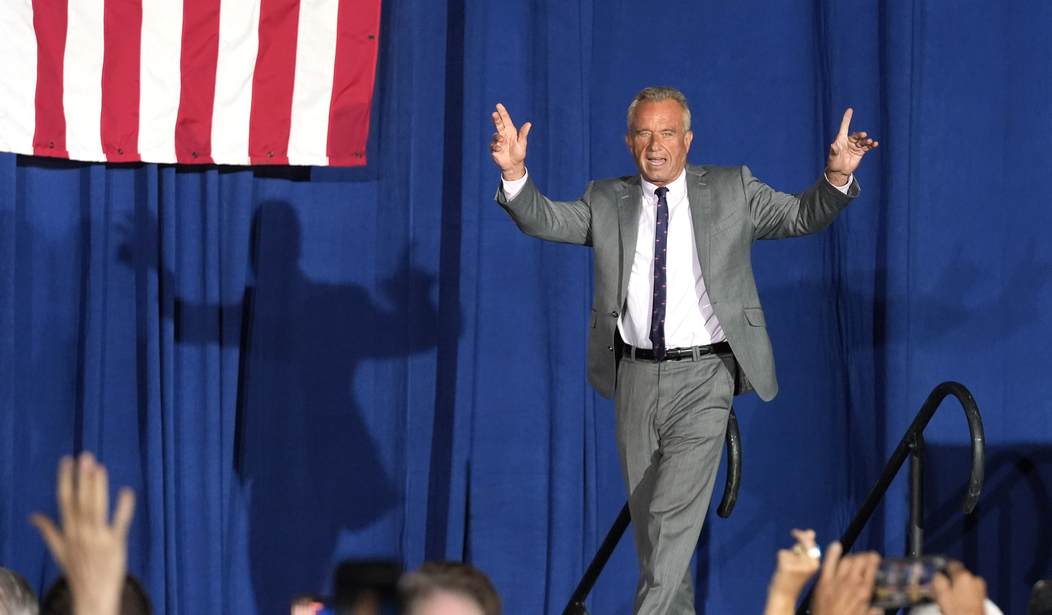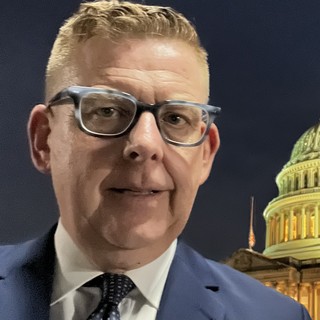The confirmation hearings for President Donald J. Trump’s Health and Human Services secretary-designate Robert F. Kennedy Jr. have finally been scheduled, but the change-up in the committee venue speaks to the spectacular drama-trauma playing out as the Washington establishment comes to grasp the reality of opposing Trump’s pick to run the $1.8 trillion department.
Kennedy is scheduled to testify before the Senate Committee on Finance on Jan. 29, first out of the gate instead of the Health, Education, Labor and Pensions Committee, chaired by Louisiana Republican Sen. William H. Cassidy.
In general, Senate Republicans have the highest immunity to Trump’s charms, in stark contrast to the close bond with Trump that House Republicans enjoy.
Cassidy, a physician, is up for a new term in the 2026 cycle and has shown no eagerness to schedule the hearings for Kennedy—claiming there was an issue with the paperwork.
Now, the scion of the Massachusetts Irish Catholic political dynasty is slated to meet with the HELP committee on Jan. 30.
Now that Trump has granted clemency to J6ers, pro-life activists, and others, it is Cassidy who needs to seek mercy and forgiveness from the restored president since he was one of seven Senate Republicans who voted to convict Trump after his second impeachment trial.
Already, former congressman and current state treasurer John Fleming has announced he is challenging Cassidy in the primary.
Yet, ramping up to these hearings, Cassidy has given no sign that he is looking to make nice. He criticized Trump's J6 pardons, and he also laid into Kennedy for his 360-degree analysis of vaccines. That said, Cassidy does not publicly oppose RFK Jr.’s nomination.
Contrary to Cassidy’s posture, Idaho Republican Michael D. Crapo, chairman of the Finance Committee, is a solid Trump loyalist.
In the Idaho Capital Sun, Chuck Malloy told readers that Crapo and his Idaho Republican colleague, Sen. James E. Risch, are on board and on duty for Trump.
So, the two Idaho senators have no interest in grandstanding over Trump’s cabinet nominations or scoring cheap political victories in the early stages of the president’s second term. Risch, especially, has Trump’s ear on foreign policy, and Crapo could become a key figure for the new administration on tax and economic policies. The senators would vote for Trump’s selections if they included Kermit the Frog and Miss Piggy.
RFK Jr’s popularity tops other Trump nominees
The son of the slain one-time attorney general and senator faces challenges from entrenched power and the president’s own party despite his strong popularity.
In the AP-NORC poll posted Dec. 12, the environment lawyer and health activist has the support of 61 percent of poll respondents, compared to 56 percent for State Department nominee Florida Republican Sen. Marco Rubio and 41 percent for Office National Intelligence nominee Army Reserve Lt. Col. Tulsi Gabbard.
A month later, The Washington Post signaled that the national capital’s establishment must still be won over in their white caps review of the 23 cabinet nominees. Of the 23, four got the WAPO thumbs-down: Kennedy, Defense nominee Pete Hegseth, Office of Management and Budget nominee Russell Vought, and Gabbard.
There is every expectation senators confirm Kennedy, and when he takes office, he will be face-to-face with that Washington establishment, not so much as a matter of policy, but because once the money, tax code, and regulations are set, interests settle in to live off the arrangements.
Every change in arrangements dislodges someone from making their living in favor of someone else—Washington wants everything settled—if only Americans would stop meddling.
The entrenched interests bracing for Kennedy are all the bureaucrats, contractors, and healthcare companies who have figured out how to prosper under the regime that has reigned for the last 15 years since the 2010 passage of the Patient Protection and Affordable Care Act.
Kennedy a game-changer
Kennedy himself is a game-changer, and people make the same mistake about the political sway they make about Trump, which is that Kennedy, like Trump, is not one man swinging a sword alone. In fact, both men are avatars for movements backed by millions of Americans.
When the son of the slain senator and attorney general inveighs for better diets, exercise, and disentangling health from the current apparatchiks making policy, he is giving voice to ideas and concerns that have been seething unseen and unacknowledged until the country’s post-pandemic awakening.
The former environmental attorney is also taking on Big Pharma.
If Kennedy successfully restricts Big Pharma advertising and physician payoff, Americans get better medicine—and better television news, when the newsrooms no longer have to kowtow to their drug-pushing paymasters.
President Trump’s nomination of Robert Kennedy is a game changer for our healthcare system. Kennedy insists that by intervening earlier through good diets, we can save billions in medical costs further down the road.
We can get better science and results by removing payments from Pharma companies to drug-approving bureaucrats.
These results are totally different from ObamaCare, where promises for lower costs were made, but reforms of Big Pharma were rejected, and today, we are paying the price.
Wendell Potter
A key villain riding over the horizon to take on Kennedy is the former Cigna media relations executive Wendell Potter. He flipped on his former industry to become the leader of the so-called single-payer program.
The former Cigna communications executive signaled his return to the national stage with this Dec. 18 op-ed in The New York Times.
Potter wrote the 2010 book, “Deadly Spin,” which makes the case that a free-market system cannot provide health care in a for-profit structure. He also describes his efforts to block reform legislation that threatened corporate profits.
Two weeks after Obama told the AMA that his PPACA would only fix problems, not cause them, Phillips testified to the Senate Energy and Commerce Committee. His experience told him that the only answer was a government-run healthcare plan:
Americans need and overwhelmingly support the option of obtaining coverage from a public plan. The industry and its backers are using fear tactics, as they did in 1994, to tar a transparent, publicly accountable healthcare option as a "government-run system." But what we have today, Mr. Chairman, is a Wall Street-run system that has proven itself an untrustworthy partner to its customers, to the doctors and hospitals who deliver care, and to the state and federal governments that attempt to regulate it.
After leaving Cigna, Potter founded Medicare for All Now, a program of his larger organization, the Center for Health and Democracy.
In November 2020, Potter hosted an online forum with three of the most radical members of Congress, Rep. Alexandria Ocasio-Cortez (D-NY), Rep. Katie Porter (D-CA) and Rep. Pramila Jayapal (D-WA). In the forum, AOC and the others said the future was the single-payer healthcare system.
Committee to Protect Health Care
Another force standing up against Kennedy is the Chicago-based Committee to Protect Health Care, which released a letter this month on behalf of its 15,000 members criticizing Kennedy’s pending confirmation.
As physicians, we are outraged by this appointment, and we call on the Senate to act immediately. Reject Robert F. Kennedy Jr.'s nomination and demand qualified leadership at HHS that prioritizes science, the protection of public health, and the well-being of all Americans. The health and security of our nation depend on it. Anything less is an abdication of responsibility to the American people.
The leftwing PAC was formed in 2019 to support leftwing candidates and policies and to attack conservative ones. During the COVID-19 scare, the committee ran ads going after Republican governors, such as Florida’s Ron DeSantis and Texas’ Gregg Abbott, for not locking down their states.
The committee should not be dismissed.
In 2023, the physicians’ organization joined the leftwing coalition in Ohio that passed the constitutional referendum that stopped virtually all government regulation of abortions. In the same year, CPHC mobilized to pass Minnesota legislation, which granted taxpayer-funded healthcare to more than 40,000 illegal aliens.
Acting HHS secretary orders radio silence
As Health and Human Services awaits the Senate’s verdict on Kennedy, the department’s acting director, Dr. Dorothy Fink, who was a Trump appointee in the first term, signed a Jan. 21 memorandum shutting down HHS communications through Feb. 1.
Fink’s edict covers all social media, press releases, public speaking engagements, and even postings to the Federal Register.
Perhaps it is the pause that refreshes, but the media blackout means that what indeed will be the most media-obsessed department for the next four years will stay quiet until its secretary-designate gets through his confirmation hearings.















Join the conversation as a VIP Member